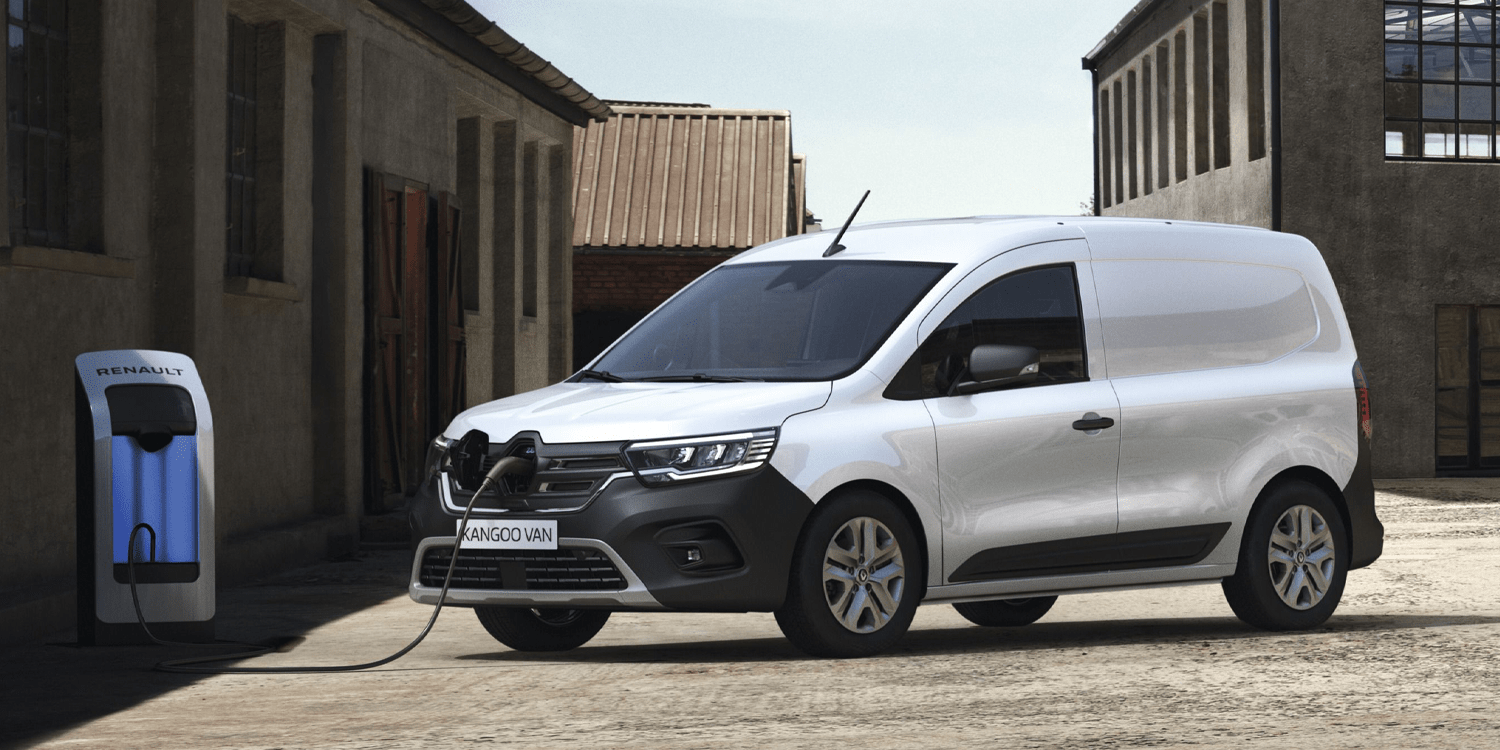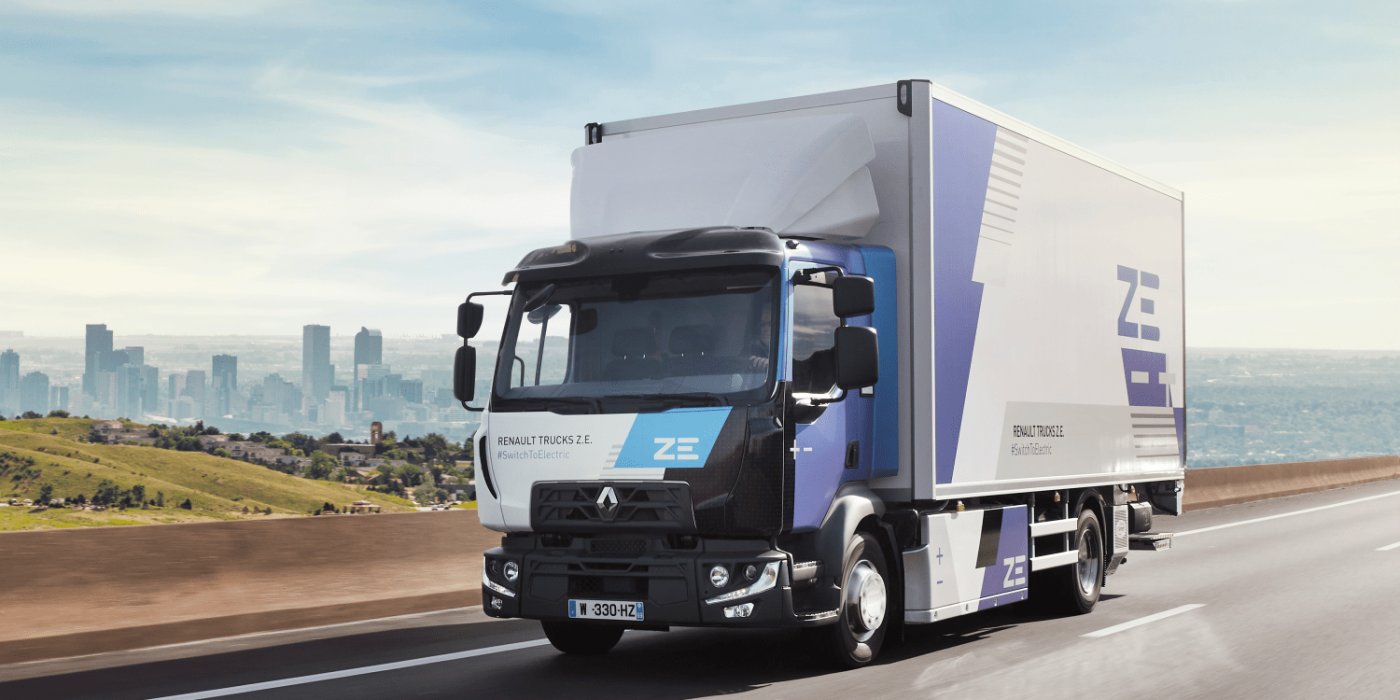Renault plans for electric truck in each segment by 2023
Renault Trucks intends to offer an all-electric range for each market segment (distribution, construction and long-haul) from 2023. To this end, the company has now created various departments specialised in electric mobility. Renault has also provided initial technical data for the Kangoo Rapid panel van.
Currently, Renault Trucks offers solutions for the requirements of urban, delivery and distribution transport as well as refuse collection with the models Master Z.E., D Z.E. and D Wide Z.E. In the future, Renault Trucks intends to extend the electrification of its vehicles to all applications: A Z.E. tractor unit will be launched in 2023 to meet the needs of regional and interregional transport. At the same time, there will be an all-electric construction site range. However, Renault is not yet giving details of the articulated truck and the construction site vehicles.
In the second half of the decade, Renault Trucks then wants to be able to offer vehicles for long-distance transport that are powered by a fuel cell. “We’re aiming for 35% of our sales to be electric in 2030. By 2040, all our vehicle ranges will be 100% fossil-free,” explains Bruno Blin, President of Renault Trucks. Since trucks are usually used for at least ten years, the French want to deliver no more fossil combustion vehicles from 2040 – so that the fleet will be CO2-neutral from 2050.
Renault Trucks is thus taking a different path than VW’s commercial vehicle subsidiary Traton. The latter had announced on Monday that it would also rely on batteries for long-distance trucks. According to Traton’s assessment, the fuel cell will also remain in the niche for commercial vehicles, for example for free-tour buses.
For the development of these vehicles, Renault is relying on the 33-million-euro research centre that will be built in Lyon by the beginning of 2023, as well as on the partnership with the Volvo Group. The Swedish commercial vehicle manufacturer has created a new development unit for medium-duty trucks, from which the French also want to benefit. Renault Trucks and the Volvo Group also want to work together on batteries; both on second-life solutions from Volvo Energy and on the development of new battery packs. To this end, Volvo is working together with Samsung SDI, among others.
Renault has also set up a new business unit for electric mobility projects to market the e-trucks, which will not only sell the vehicles but also accompany and support the customers. “This team has acquired a high level of expertise and is working to develop partnerships involving all the stakeholders (hauliers, distributors, public authorities, energy suppliers, etc.) to propose smart and competitive electric range with added value for hauliers,” Renault Trucks writes. This includes, for example, the installation of charging infrastructure, repair and maintenance or financing and insurance.
Renault reveals first details of the new electric Kangoo
Renault also has news in the light commercial vehicle segment: the French manufacturer has unveiled the new Kangoo Van E-Tech Electric, or ‘Kangoo Rapid’, as it was called in the German language communication, which will be launched on the market in June 2021 and will also be offered again in a fully electric variant from 2022. The Kangoo Van E-Tech Electric is powered by a 75 kW electric motor and draws its energy from a lithium-ion battery with 44 kWh capacity, which is said to provide a range of around 265 kilometres. In Eco mode, the power is throttled down to 55 kW.
The battery should be able to be charged with up to 22 kW AC or 75 kW DC. At a fast-charging station with the corresponding power, the battery should be able to be charged to 80 per cent in 42 minutes. At a 22 kW AC charging point, a full charge takes exactly two hours, according to Renault. With 11 kW it should be 4:30 hours, with 7.4 kW seven hours. At a household socket, Renault specifies a charging time of 26 hours.

The Kangoo Van E-Tech Electric will be offered in two lengths. The standard version offers 3.3 or 3.9 cubic metres of load space and 540 to 740 kilograms of payload. The long version, which is not yet available at market launch, is expected to achieve between 4.2 and 4.9 cubic metres of load space. These data come from the combustion engine version.
The Kangoo Van E-Tech Electric is the commercial vehicle version of the panel van. There will also be a passenger car version. It is not yet known whether this version will have different technical data. Renault has not yet announced prices.
There will also be a Mercedes-Benz version of the Kangoo: As a commercial vehicle, it will be the new edition of the Citan, while the passenger car version will be called the T-Class. Unlike the previous Citan, the changes made by Daimler will be much more comprehensive in order to differentiate the vehicles more strongly.
renault-trucks.com, renault.com (Kangoo Van E-Tech Electric)





0 Comments